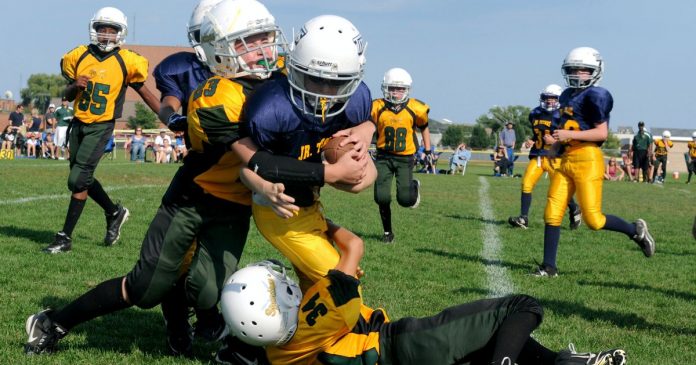Too much rest after a concussion can actually delay an athlete’s recovery and prolong symptoms, a US panel of experts recommended in an updated concussion consensus statement.
“Most athletes who have had a concussion get better and can play again,” said Dr. Margot Putukian, a member of the panel of experts that drafted the consensus statement.
Putukian and her peers say that the number of first symptoms an athlete experiences and their severity are the best determinants of how long recovery will take. However, most adult athletes recover fully within two weeks, and children within four weeks.
Symptoms of a concussion include amnesia, disorientation, brain fog, slurred speech, headache, dizziness, hypersensitivity to noise, and impaired vision.
“Each injury is unique and has its own schedule. But athletes should rest assured that there are treatments in place and steps they can take to aid their own recovery, ”Putukian said in a statement.
While sports-related concussions remain a concern in the US, the highest rates are observed in men in collision sports such as soccer, wrestling, ice hockey, and lacrosse. Concussion rates are also high in girls’ and women’s football.
Risk factors for a more complicated recovery, according to the updated statement, include younger age, previous concussions, loss of consciousness for more than a minute, and pre-existing conditions such as migraines, attention deficit hyperactivity disorder, learning disorders, mood disorders, and motion sickness.
Gradually returning to moderate aerobic exercise in the first week after a concussion will help speed recovery, the experts said.
Any lingering symptoms, such as fatigue, headache, and anxiety, are usually the result of a “complex interaction” of several factors, including previous illnesses and the physical and mental effects of the concussion.
Treatment for concussions should focus on specific symptoms, the statement said, and may include cognitive behavioral therapy, as well as improved sleep, diet, and hydration. Most injured athletes do not need over-the-counter or prescription drugs to manage their symptoms.
Putukian and her co-panelists also looked at the available data on nutraceuticals. – Foods and supplements that offer health benefits – and found that they did not help prevent or treat a concussion.
They also noted in the updated statement that diagnosis is one of the hardest parts of treating a concussion. There are currently no specific blood or imaging tests that can detect a concussion, and many of the symptoms can be related to various health conditions.
Because of this, the true incidence of exercise-related concussions is still unknown.
Panellists also recommend that coaches and relatives of concussion athletes watch out for symptoms that may indicate a more serious brain or neck injury that requires immediate emergency care – seizures, loss of consciousness lasting more than a minute, persistent vomiting, increasing confusion , Tingling or numbness in the extremities, and neck pain.
The consensus statement, which is an update of a 2011 published, was published in the British Journal of Sports Medicine. Panelists included experts from six major professional associations, including the American Academy of Orthopedic Surgeons and the American College of Sports Medicine.

We understand how important it is to choose a chiropractor that is right for you. It is our belief that educating our patients is a very important part of the success we see in our offices.
